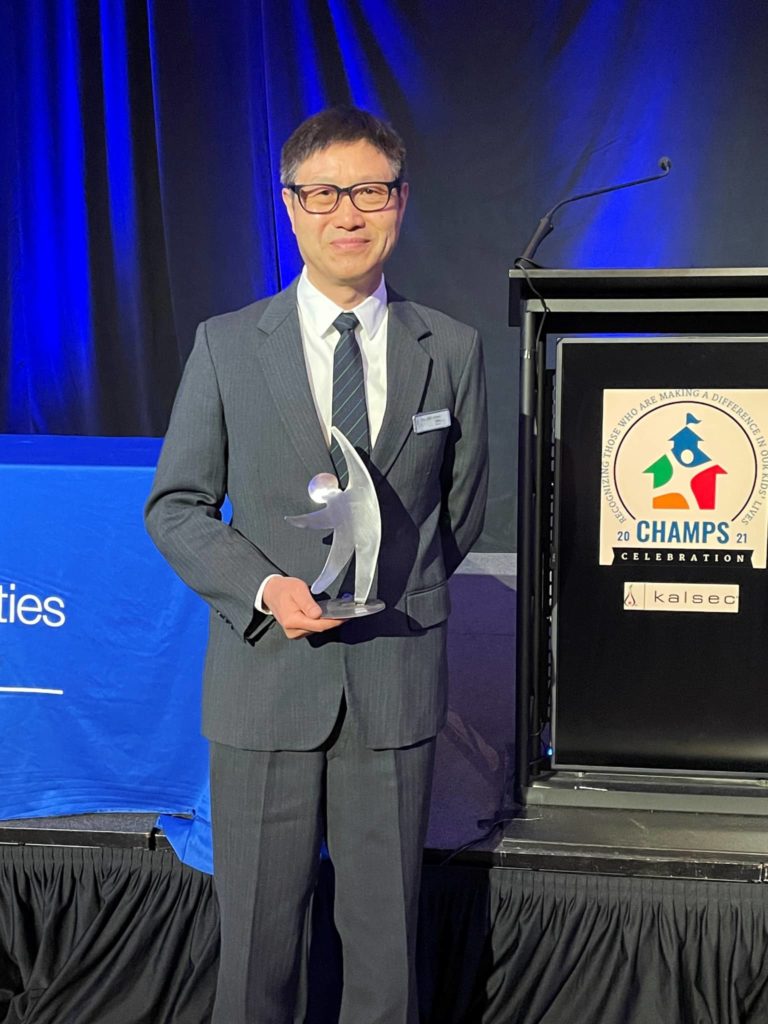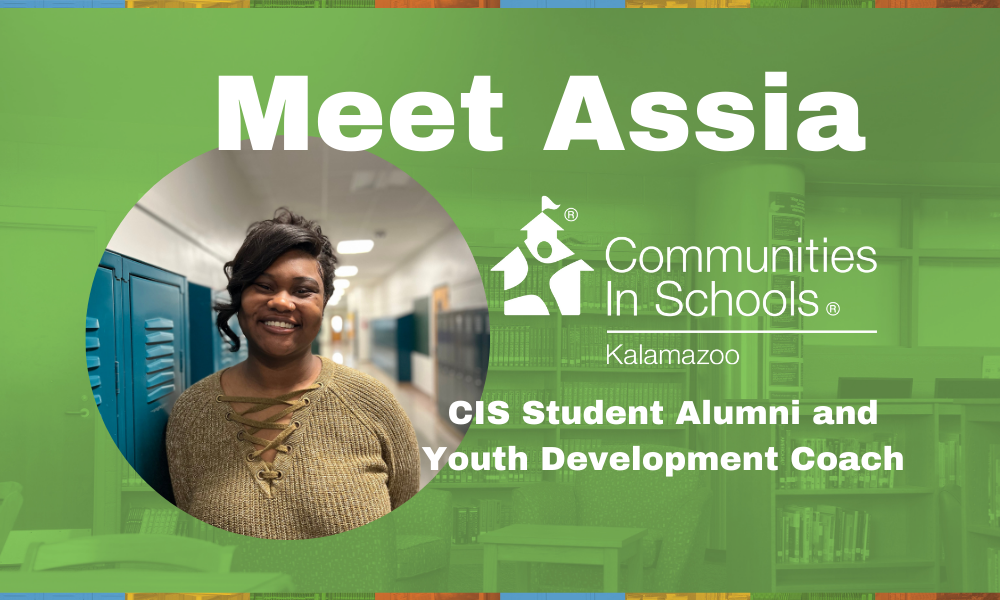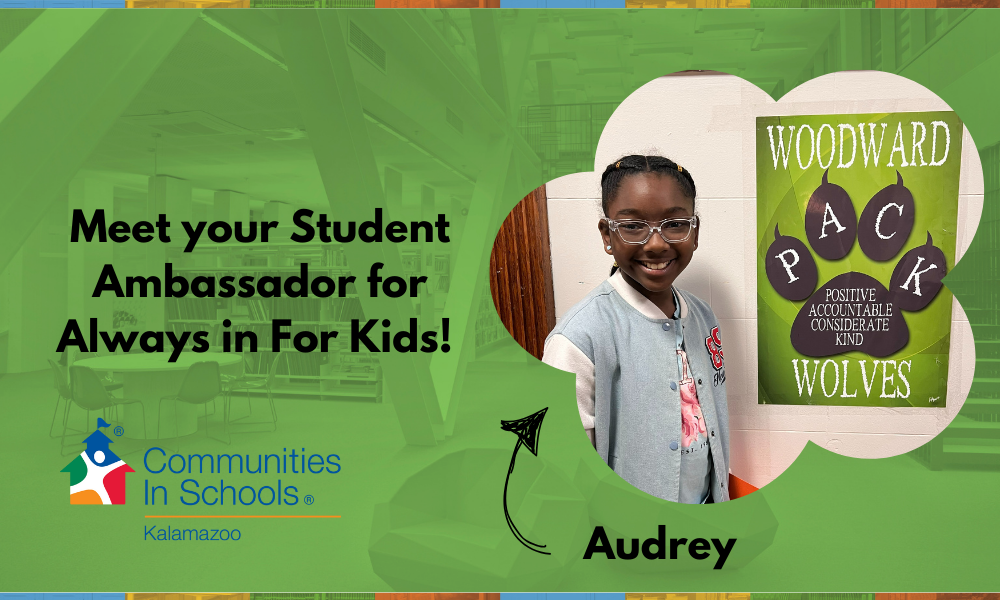Welcome back to the POP QUIZ! This is a regular, yet totally unexpected, feature where we ask students, parents, staff, our friends, and partners to answer a few questions about what they are learning, reading, and more. Today we feature Dr. Jim Zhu. Professor of Mathematics at Western Michigan University, Dr. Zhu recently received a Champ award for his CIS volunteer tutoring work with students at Milwood Magnet Middle School.
Alright, Dr. Zhu: pencil out, eyes on your own paper. Good luck.
POP QUIZ
Milwood Magnet students you have tutored say that you make math easy to understand. So what is the trick to helping students understand math?
You understand it well and then you can help others. Teaching math is like teaching anything. For example, when my son was little and learning piano from his piano teacher the teacher was experienced and made it easy to learn. It helps that teachers have gone through the hard part of practicing and they, too, have been challenged. So they can be a good guide. There are no tricks, just mastery of the subject.
When we chatted back in 2017, you said that American schools emphasized the conceptual aspects of math and not enough practice. [You can find that interview here.]
Yes. We should encourage students to practice math. Practice leads to doing math well.
What, besides math, do you practice?
Tai chi. I also swim every day. And play Go online. [Created more than 2,500 years ago, Go is a popular Asian board game and has been compared to a more complex form of chess.] I’m also practicing with my wife how to back the RV into our driveway.
How are you doing with that?
Initially, it took two of us 20 minutes. We’re able to back it into our driveway in three or four minutes now. Hopefully, we can get it down to one minute.
In both your teaching world at Western and with tutoring through CIS you have shifted to online. How has that been going?
I’m finding, at least with math, that the online mode works well. I think it is a trend that is here to stay. Future students will be very in tune with this format. They are used to playing online games and searching problems online … Students want to get online assignments right as if they are playing a game, if don’t get it right, they will try again. They are familiar with searching hints online so they keep working at it to get it right. When they are doing work on paper, they don’t do their homework as much. The online mode seems enticing them to do the practice.
What are you currently reading?
I have an audio book subscription so when I take a walk, I listen to books. I’ve recently read Nomadland by Jessica Bruder. It’s about people who live on RVs. It is not about luxury or visiting national parks. It is a way of life, staying in parking lots, living in their RV, and working seasonal jobs such as those in Amazon storage facilities.
The other book is Caste. It’s eye-opening. We hear a lot about race relations these days. To learn the history and roots of some of these tensions in race relations is most educational.
On the light side, I’m currently reading a psychological thriller: Silent Patient by Alex Michaelides.
What is something you’ve recently learned?
How to back an RV into our driveway!
Back in 2017, you shared with us a Chinese character that represented your favorite word. It translated to “Let go.” Do you have a new favorite word as of late or hasn’t it changed?
Most recently, it is “Life matters,” particularly after the Atlanta spa shooting. The disregard for life is shocking. In general, the Asian community is reeling from this. I can understand that people—all people—have prejudices and hold stereotypes toward people of different cultures. This I can understand. We all have prejudices. But the shooting and the recent rise of Asians getting attacked, that type of open hatred is shocking.
It’s horrifying. With these wave of hate crimes that have been on the rise during the pandemic, have you or those close to you felt a shift?
Working at the university, it’s a diverse environment. Half of our department faculty are international. In my work environment, I don’t even realize I’m a foreigner. In my neighborhood, everyone is friendly. I have been living in a bubble. To think that someone might randomly hit or shoot you …
You referred to yourself as a foreigner, but you are not a foreigner.
No, I’m an American citizen. But I am clearly not a native of here. So when someone says, “Your English is good” I take that as a compliment. But it is different for our next generation. When someone says that to my son he says, “What do mean my English is good? Unlike my wife and me, he grew up here and felt he was fully integrated. So those kind of experiences are jarring.
Back to that other phrase you like: letting go. What have you had to let go of during this pandemic?
We like to travel and have let go of this. We’ve let go of gathering with friends and our social life. I’ve had to let go of meeting up in person with bright graduate students. I’ve let go and trying to get used to not visiting my family in China. Perhaps I may not be able to do so for some time to come.
Lots of letting go.
I also practice meditation. That helps.
What is a question you recently asked or perhaps have been asking a lot lately?
Since the pandemic, I’ve been thinking a lot about instruction and teaching. This is my career. And I have been thinking, what is the role of teaching? What is the role of an instructor? What is different about teaching a class online versus in person? What is the difference you can make with students through online teaching versus what happens in the classroom?
I have been following the uproar at a Canadian university. A student, half-way into the semester, attempted to reach out to the professor of his favorite class he was taking online. He learned that this person he had felt connected to had recorded the class and had passed away several years earlier. [More on that story here.]
Where has your thinking on this led you?
You have to know what you can teach and what you can not teach. For math, what you can teach is the skill. What you can’t teach is creativity. Some in the education circle advocate that we should teach creative thinking. Decades of experience tells me you can’t do that—unless you do that all the time. If you are not a master of creative thinking, you can’t teach that. If you are not a champion skater, how can you train others to be champion skaters? What you can teach is only the skill. That’s why my philosophy of teaching math is to practice. Practice gives you the skill which lays a foundation for the development of our students in the future.
The other thing that is important is the personal interaction with the students. When you teach, you not only inject knowledge, but you can serve as inspiration and give students the confidence they need to explore.
Often in my class I have to demonstrate how to do math. If time allows, I then have students demonstrate to their fellow students. While you can do this to a certain extent with online teaching, it is somewhat handicapped. In person teaching best allows you to show your mode of working and also allows students to imitate.
Thank you, Dr. Zhu, for hanging out with us at Ask Me About My 12,000 Kids.

Tags: Communities In Schools of Kalamazoo, Dr. Qiji Zhu, Milwood Magnet Middle School, supporting students to succeed




